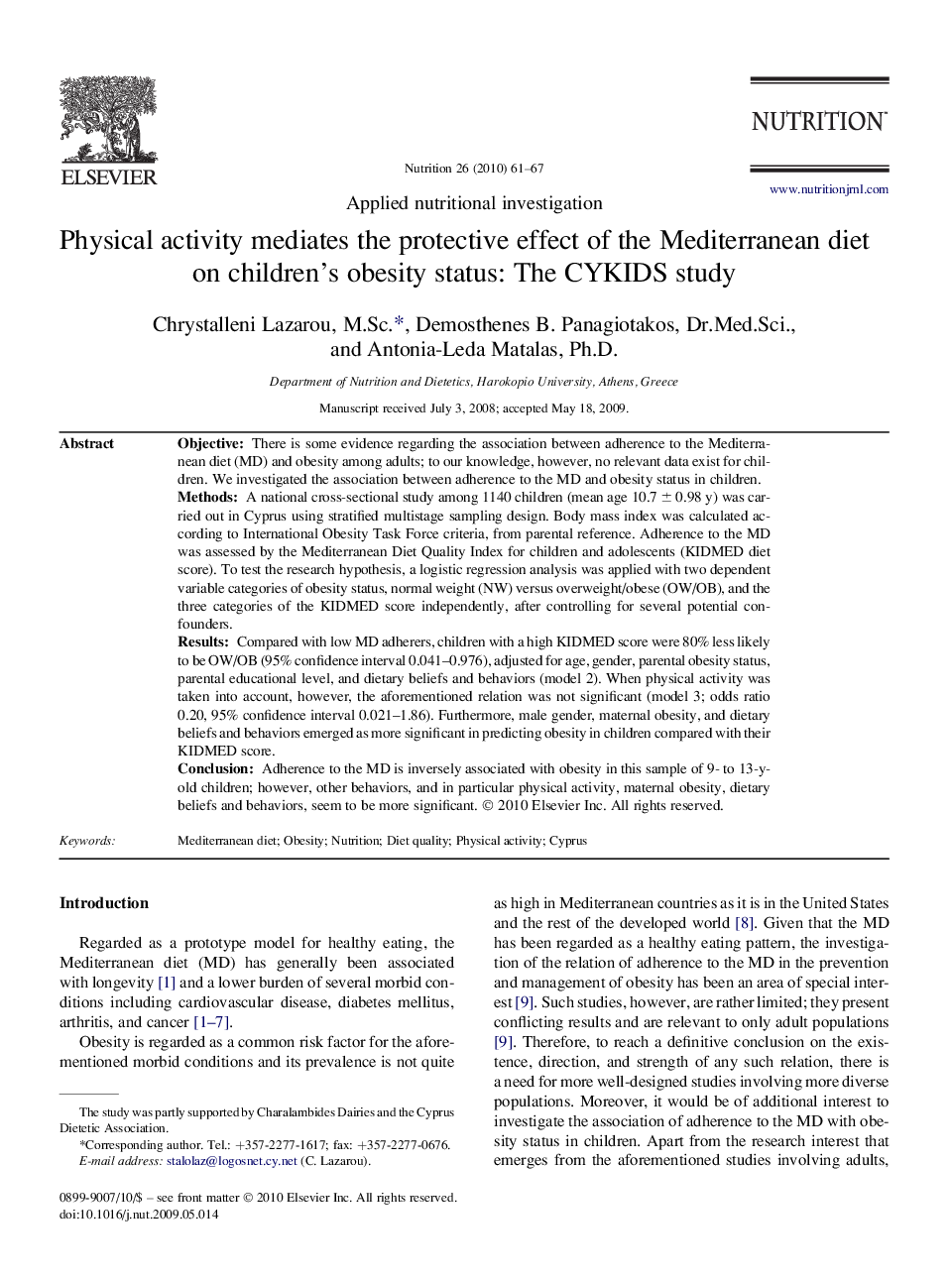| کد مقاله | کد نشریه | سال انتشار | مقاله انگلیسی | نسخه تمام متن |
|---|---|---|---|---|
| 3276879 | 1208594 | 2010 | 7 صفحه PDF | دانلود رایگان |

ObjectiveThere is some evidence regarding the association between adherence to the Mediterranean diet (MD) and obesity among adults; to our knowledge, however, no relevant data exist for children. We investigated the association between adherence to the MD and obesity status in children.MethodsA national cross-sectional study among 1140 children (mean age 10.7 ± 0.98 y) was carried out in Cyprus using stratified multistage sampling design. Body mass index was calculated according to International Obesity Task Force criteria, from parental reference. Adherence to the MD was assessed by the Mediterranean Diet Quality Index for children and adolescents (KIDMED diet score). To test the research hypothesis, a logistic regression analysis was applied with two dependent variable categories of obesity status, normal weight (NW) versus overweight/obese (OW/OB), and the three categories of the KIDMED score independently, after controlling for several potential confounders.ResultsCompared with low MD adherers, children with a high KIDMED score were 80% less likely to be OW/OB (95% confidence interval 0.041–0.976), adjusted for age, gender, parental obesity status, parental educational level, and dietary beliefs and behaviors (model 2). When physical activity was taken into account, however, the aforementioned relation was not significant (model 3; odds ratio 0.20, 95% confidence interval 0.021–1.86). Furthermore, male gender, maternal obesity, and dietary beliefs and behaviors emerged as more significant in predicting obesity in children compared with their KIDMED score.ConclusionAdherence to the MD is inversely associated with obesity in this sample of 9- to 13-y-old children; however, other behaviors, and in particular physical activity, maternal obesity, dietary beliefs and behaviors, seem to be more significant.
Journal: Nutrition - Volume 26, Issue 1, January 2010, Pages 61–67